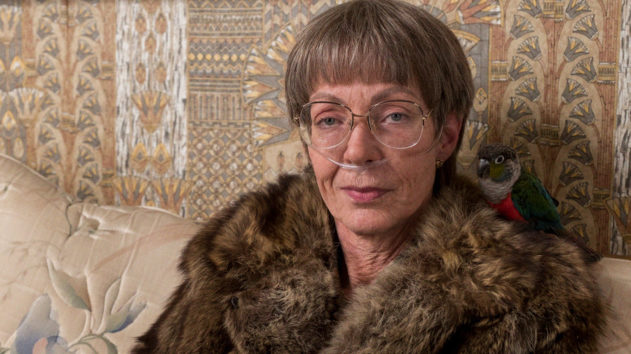For something about the brokenness of these women reminded me of my own mother, enabled me to understand her not merely for the harm she enacted but in the light of her own suffering and her pain.
The Oscars were a coup for bad mothers, and I have to say I am delighted.
The Best Supporting Actress award went to I, Tonya’s Allison Janney for her portrayal of LaVona Fay Golden, the reviled mother of figure skater Tonya Harding. Best Actress went to Frances McDormand, whose performance in Three Billboards Over Ebbing, Missouri could be called career-defining. Neither win was an upset; both awards were much deserved and all but foregone conclusions. And rightly so. These honors were well-earned. Janney and McDormand are inimitable; both characters were brilliant.
In a year in which survivors of sexual violence declared time’s up, mainstream cinema gave us a year of women. Mostly white women, regrettably—Hollywood’s casting and production and honorifics must change to reflect our society’s full range of diversity—but women, nonetheless.
Frances McDormand and Allison Janney led the way.
I loved these wins because McDormand and Janney are amazing. I’d like to see a fuller depiction of motherhood in all its charms and horrors; the joys and the sorrows; the general thanklessness, the boredom and the endlessness of days. I’d like—it bears repeating—to see more and fuller representations of mothers of color, of trans mothers, of homeless mothers, of mothers with disabilities, of undocumented mothers, of mothers who aren’t perfect, or performing an understated sexuality for the male gaze. And even as I call for fuller representation, I loved that two timeless, fearless, aging women won these awards; it is not lost on me that these awards were granted to actors at the peak of their craft, playing characters who were ragged and ravaged, and enraged.
“I didn’t stay home making apple brown bettys,” LaVona tells her daughter, “No, I made you a champion knowing you’d hate me for it. That’s the sacrifice a mother makes.”
Meanwhile, at the other end of the sympathetic spectrum, Frances McDormand’s Mildred Hayes also shows us the sacrifices a mother makes. Mildred was a vigilante; hot on the pursuit of justice, she sacrifices everything in the name of her daughter, albeit too late. Mildred has been hardened, reasonably, by the brutal, unsolved rape and murder of her daughter; by the abuse and departure of her husband, and by whatever came before. We don’t know what came before, and even as we hope for redemption for this woman who is scarred and grief stricken, played brilliantly by McDormand, whose every emotion cut clearly as a look in her eye or a line in her face.
Most of us, thank God, are not LaVona Fay, and most of us, thank God, will never know the abject pain of Mildred Hayes, what drove her to take her course of action. The films were imperfect and problematic; these characters, like all characters, were imperfect and problematic. But in their broken examples I found reconciliation. For something about the brokenness of these women reminded me of my own mother, enabled me to understand her not merely for the harm she enacted but in the light of her own suffering and her pain.
These wins are a nod to brilliant and fearless acting, but they’re also an acknowledgement of mothers who did not stay home and bake apple brown bettys. Of mothers who gave too much or not enough. Of mothers who pushed too hard, who were distracted or isolated, tired and overrun, exhausted and abused. Of mothers who are too much and not enough, who were damaged and broken and therefore who were cruel and inflicted pain. These are the mothers we are—these are stories that are deeply needed but seldom told because they are not easy and because they are not pretty and because they do not behave. Our examples are rarely so extreme. But seldom is the mother who is pretty, who is easy, who behaves.
Oscars aren’t awarded therapeutically, but in watching these characters onscreen, I was better able to understand my own mother’s limitations. Not unlike Lavona and Mildred, my mother was lacking for many reasons, most of which were beyond her control. So I cheered for Janney and McDormand when they won their respective awards. When I watched them onscreen, portraying these broken women with defiant vulnerability, I could see that the gulf between the mother I yearned for and the one I had is where I was made.
A.L. Giannelli lives, writes, and teaches in Western Massachusetts, where she is currently at work on her first book. Her writing has appeared in publications including The Manifest Station, Salon, and the Washington Post.
Other Links:

